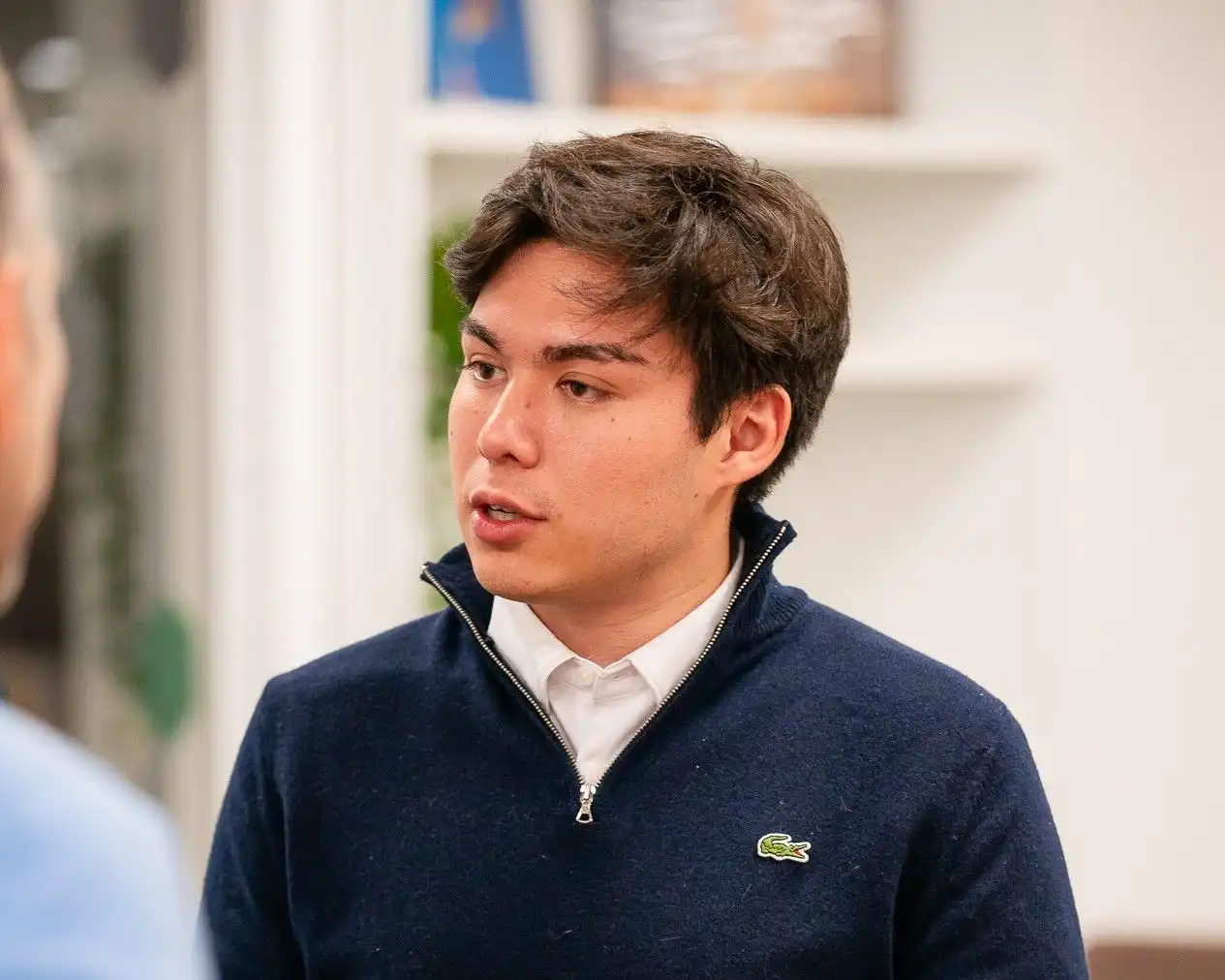Home>Mathieu, Founder of ECONOS
19.11.2025
Mathieu, Founder of ECONOS

Mathieu Gregori has graduated in Environmental Policy. Coming from France, he is the founder and managing partner of ECONOS, a sustainability consulting firm focused on carbon footprint assessments, ESG reporting, and training.
What are your main responsibilities?
As the founder and managing partner of ECONOS, I lead the business development, client relationships, and the design of our service offering, from Scope 1-2-3 carbon footprints to IFRS S1-S2 and CSRD/EU Taxonomy compliance.
On a daily basis, I supervise projects across Europe, India, Brazil, the US, and Romania. I coordinate a multicultural team of consultants and trainers, and ensure the quality of our deliverables (reports, workshops, data models, and client tools). I also founded and manage the ECONOS Academy, a hands‑on training program designed to help companies develop internal ESG capabilities, enabling them to operate independently once our support concludes.
Key skills for this role include strong analytical thinking—particularly in relation to climate and ESG data—the ability to communicate complex topics with clarity, effective project management, and cross‑cultural collaboration with both corporate and technical stakeholders.
How did you prepare for this job?
My preparation was a mix of academic training at Sciences Po and hands-on experience. At PSIA, I drew on courses, readings, and collaborative projects to build a strong foundation in climate policy, environmental economics, and global governance. One of the most valuable aspects was having direct access to world-class sustainability experts (both among the faculty and through guest speakers!). Learning from top practitioners in the field helped me prepare for the complexity of ESG consulting and understand global best practices.
At the same time, I actively sought internships and consulting missions during my studies to see how these sustainability principles were applied in real organisations. Networking with alumni also helped me clarify what roles would best match my skills and interests, and ultimately led me to entrepreneurship.
What is the most fascinating part of your job?
What fascinates me most is turning sustainability from abstract goals into concrete decisions. One week I am focused on helping a food producer estimate its Scope 3 emissions, the next I’m training a textile group on ESG reporting or preparing a decarbonisation strategy with a real estate developer.
I also find it rewarding to see client teams evolve. Our model is not to create dependency, but to train people on real projects until they are fully autonomous. Seeing a client who started from zero later lead an internal ESG process or present their results to external stakeholders is extremely satisfying.
How did your PSIA experience contribute to the position you hold today?
My experience at PSIA provided me with three essential advantages that continue to shape my career.
First, a strong understanding of international climate and environmental policy, from the Paris Agreement to the EU Green Deal. This allows me to place sustainability consulting in the wider regulatory and policy context.
Second, advanced communication and analytical skills. Writing the famous dissertations, research papers, and memos at PSIA trained me to digest complex information and turn it into actionable insights. This is exactly what I do now for companies trying to navigate sustainability rules.
Third, exposure to international teamwork and high expectations. Group projects with classmates from diverse backgrounds prepared me to lead a multicultural team and work with clients around the world. My third semester and early missions confirmed that I wanted a career grounded in practice but connected to global sustainability standards.
What advice would you give to current students?
Here too, 3 things:
Invest early in practical skills, especially around data and impact measurement. Basic statistics, Excel, and emissions accounting are highly valued in this field.
Get applied experience. Choose at least one mission where you work with a real client or organisation, this is how you understand real-world constraints.
Use the Sciences Po network. Speak to alumni working in business, international organisations, and consulting. Their feedback will help you align your career choices with both your values and your strengths.
Information Sessions: Masters

Find out more about the Masters programs and the wide choice of specialisations offered by the 8 Schools of Sciences Po during our webinars dedicated to applicants.